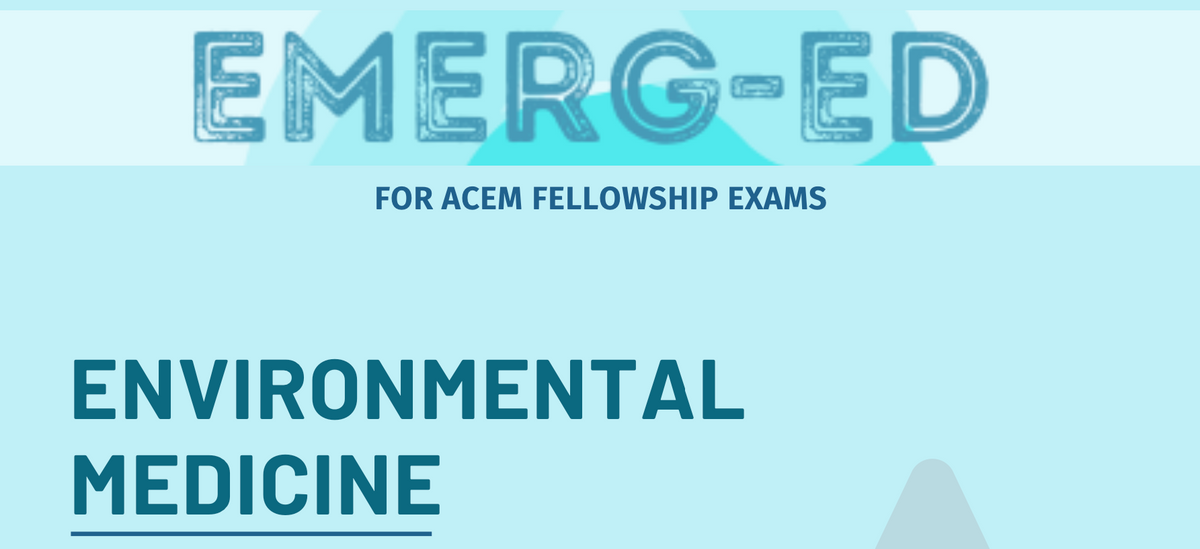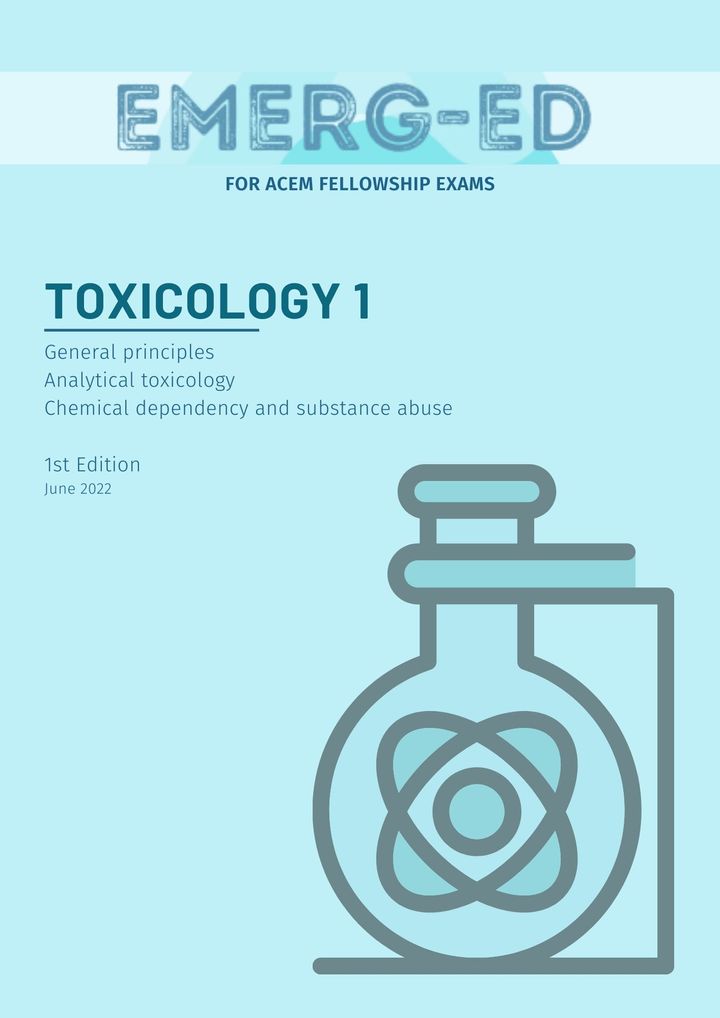First workbook release - Environmental Medicine!!!

Welcome to everybody who has subscribed to the website, it's great to have you here and also to stop keeping you waiting with our first workbook launch. If you enjoy the workbook please promote it to your colleagues and let us know your feedback (twitter @_emerg_ed_ is easiest at this stage whilst we establish an official email account).
You can download it for free here...
The idea for the workbook came from trying to test myself during my revision, which I found a lot more work than simply reading or highlighting material. It's harder because it uses more brain power, but this is exactly why it works. I wanted to make a resource that could be quickly referred to for rapid active recall, ideas for brain dumps and even some practice exam style questions. What has come from this is the first eWorkbook based on the medical expertise section of the ACEM curriculum for Fellowship exams.
I will be steadily adding to the workbook library, plus other relevant blogs on clinical education, clinical scenarios and prehospital medicine.
How to use the workbooks
- You can write your answers on the computer (writeable PDF) or print it out and write by hand, whatever you prefer, but remember you will be typing in the exam.
- Complete the brain dumps - before you start any topic, activate your memory by trying to write down everything you know about the topic before you read anything about it. This is a fast and effective method of active recall and will show you exactly how much you know already and where your areas for improvement are. It's also great practice for grouping information into sections/structure.
- Fill in the box questions. These are similar to short answer questions. You will find that some important boxes are repeated - repetition is good for you!
- Try out an OSCE scenario - examples included for some of the topics. You can do this by yourself (as long as you talk out-loud), or with study buddies (the best way)
- Summarise - these boxes are there to guide you with summarising your knowledge. You can expand on these by writing your own until you feel you have covered the important points.
- Interleaving - as you study a topic your mind may wander to other related topics. Its ok to follow your mind, but remember to come back again afterwards. Linking topics is known as interleaving and is a great way to create a web of easy access information in your mind.
- Space plan - spaced repetition needs a bit of structure to ensure it occurs. We have made a template for this on notion which we recommend you open and make it your own - there are easy to follow instructions on the template (link below). Alternatively you can print the space plan page and put them in a folder, ordering the ones you need to do often at the front, and less often at the back.
- When you repeat each topic - always start with a brain dump, pull faint memories forwards and they will be easier to find next time (have we said this enough times yet?)
For further information about active recall, spaced repetition and interleaving, here's a great video by Dr Ali Abdaal explaining some of the evidence behind these learning techniques:
Follow + message/comment on Twitter https://twitter.com/_emerg_ed_
Subscribe for email updates and posts directly to your inbox (no spam!)
